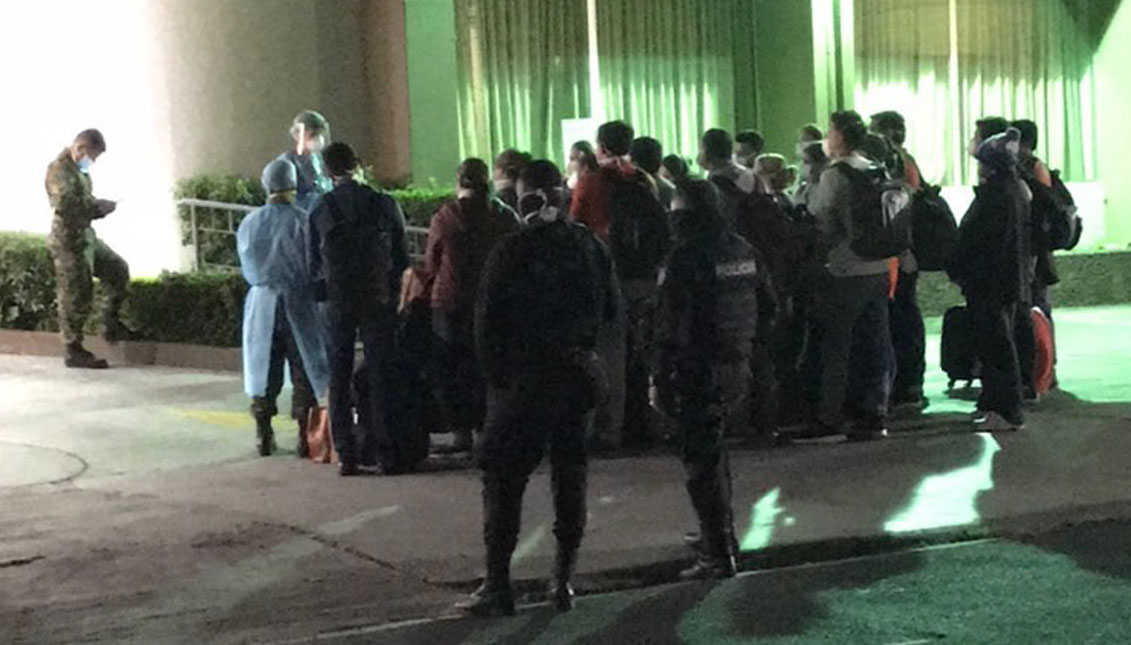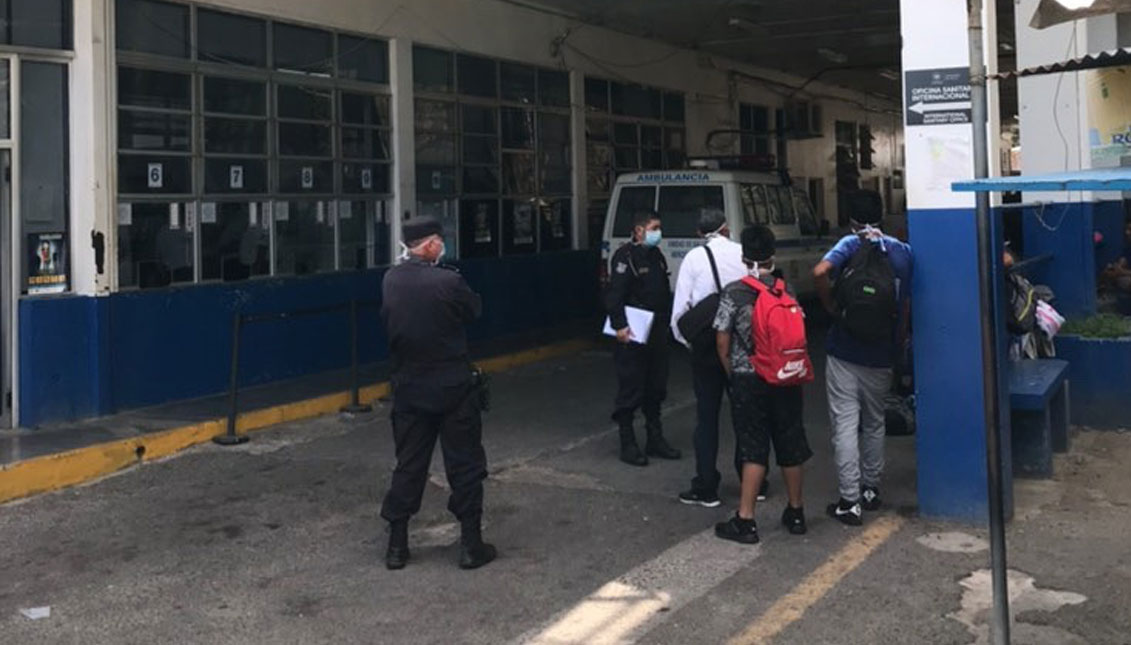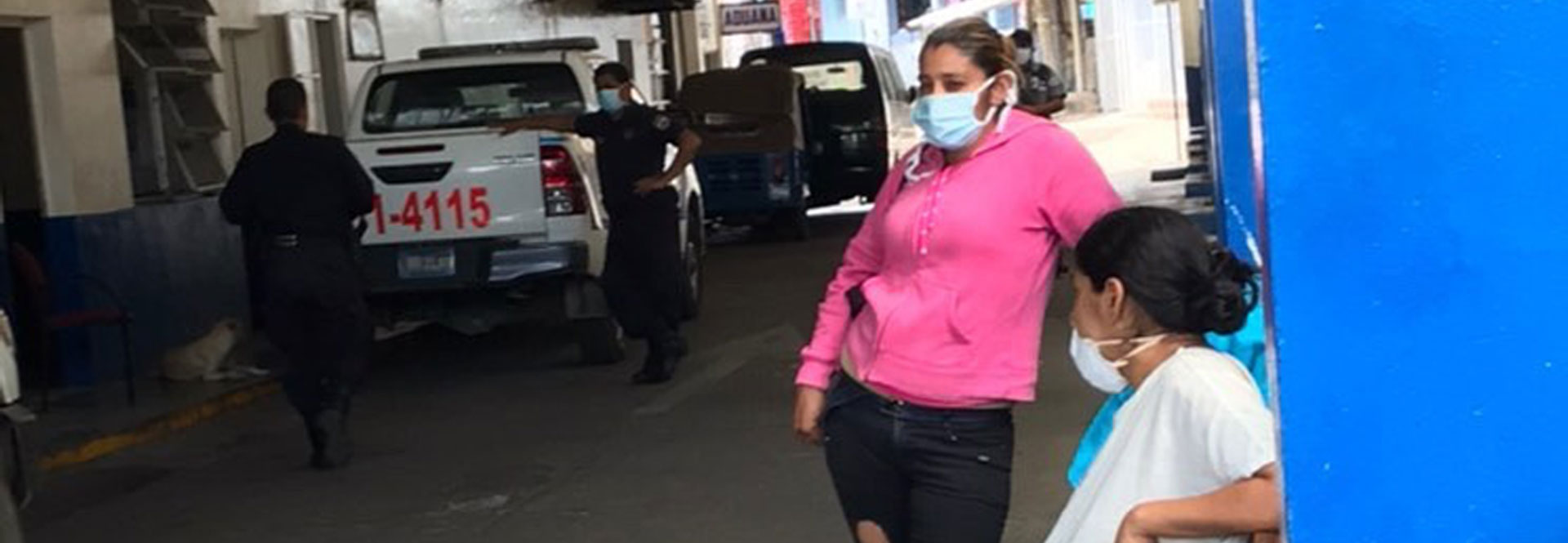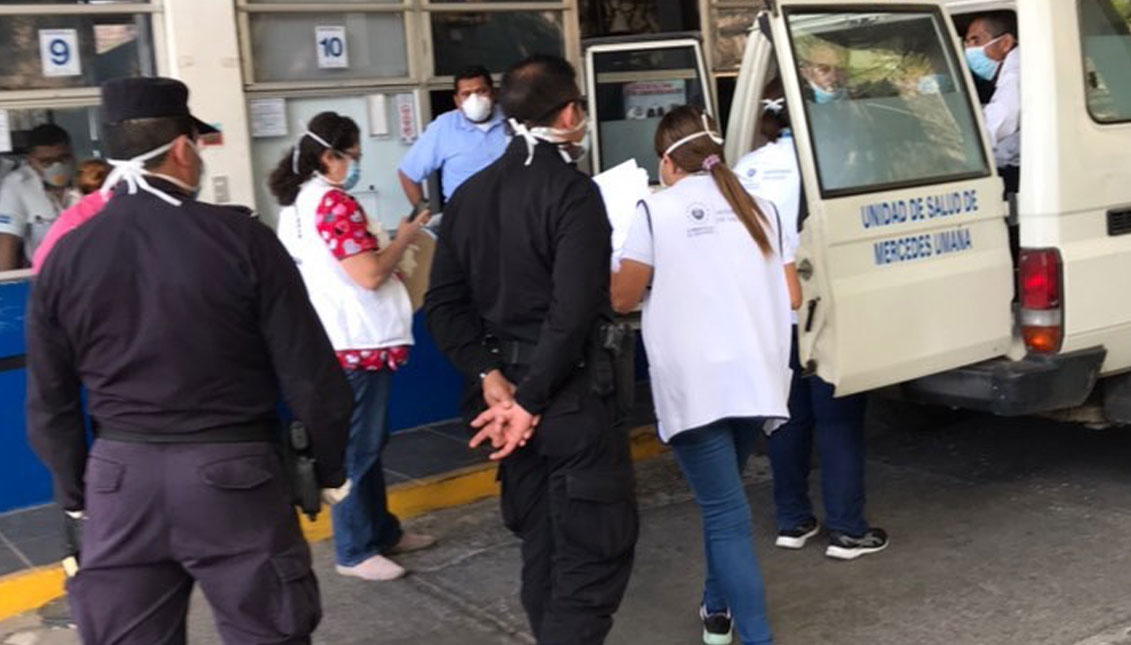
Quarantined in El Salvador: A story of travel and detainment during COVID-19
How a birthday party turned into 30 days of quarantine in San Salvador.
The subject's name has been changed for her and her family's safety.
At the end of the day, Vanessa admits she, her sister and dad were in the wrong.
They had been planning their grandfather’s birthday party for months, and the coronavirus was not about to stand in the way of putting those plans into action.
At 75, Vanessa’s grandfather had worked on his farm in the southeast part of El Salvador for his whole life without a complaint. He’d carved out a comfortable life for him and his family, while expanding his estate to the border with Honduras.
According to her, he had never asked for anything for any of his previous birthdays.
“But he wanted a party for his 75th, and we had to do it,” she said.
However, when El Salvador’s president, Nayib Bukele banned all foreigners from the country on March 12 in hopes of stopping COVID-19 from reaching the small, Central American country, it was the same day Vanessa, her sister and dad were scheduled to fly there.
When they initially landed, her dad made it through as a native Salvadoran, but both her and her sister were turned away.
Not to be denied, the three quickly arranged for an alternative route to their destination in La Unión via Honduras. Their next flight was to Tegucigalpa.
Now, the border between Honduras and El Salvador is nothing like the one that separates the U.S. from Mexico. There is a river, but it’s no Rio Grande, and most importantly, there is no wall to separate the families that live in both countries.
In normal circumstances, daily trips are made across the border in both directions, but the coronavirus was destined to shut them down per Bukele’s orders.
Still, Vanessa, her sister and dad made it into El Salvador sometime between March 12 and 13 across the river.
“On the way to the border, we were actually stopped by the Honduran army. They sent us on our way,” she said.
And so, the party went on that Sunday, March 15, attended by more than 80 friends and family members.
In a small town like theirs, news travels fast. So when word got out about Vanessa’s grandfather’s party, more than a couple knew they had come from the states to celebrate against their country’s orders.
At a party her dad attended on Friday, March 13, he was warned by a friendly acquaintance about the government’s crackdown on foreigners.
Little did any of them know, this same person — full of future mayoral aspirations — would alert authorities of their presence.
“He said he was protecting the town and publicized his actions on social media for attention.” said Vanessa.
A day after the party, things seemed normal, as did Monday, March 16. But on the morning of March 17, the authorities arrived at her grandparents’ farm looking for them.
Emotions ran high. Her sister cried while her dad turned pale when a doctor followed by two soldiers toting assault rifles turned up.
Even her grandmother cried as the three were loaded onto a pick up truck headed for then, an uncertain destination.
A two-and-a-half hour drive later, they were at an immigration center in the border town of El Amatillo.
Despite their imposing appearance, Vanessa said the soldiers were kind to her, her sister and dad.
“If anyone has it the hardest, it’s them,” she said.
When they got on the bus, passengers were provided water, but Vanessa said they gave most of theirs to the soldiers, who wear thick uniforms and lug heavy gear around in temperatures that rarely dip below 90 degrees Fahrenheit in March and April.
At the immigration center in El Amatillo, her, her sister and dad waited for more than a couple hours to be processed by Salvadoran customs.

It was enough time for Vanessa to meet some of their other fellow “detainees.”
The first she met was a man in his early 20s, who was caught on his way back to El Salvador after transporting a group of migrants through El Salvador to Honduras.
He thought about running when the soldiers stopped him, but eventually conceded to going into custody.
“Please don’t run, or we’ll have to shoot you,” he told Vanessa were the soldiers’ pleas.
The second person she met was Delmy Calderon Velazquez. She was pregnant and when Vanessa talked to her, was in a very precarious situation.
Like Vanessa, Velazquez was from a border town in El Salvador, but farther north than hers. Her husband was Honduran, and crossed the border frequently to visit his family.
When El Salvador’s lockdown went into effect, he was detained and then deported to Honduras, leaving Velazquez alone at their home on the other side of the border.
In addition to the baby on the way, there was another young child at home alone until Velazquez’s ordeal at El Amatillo was over. A family friend came to take care of the child at home.
“I felt horrible for her,” said Vanessa. “She was totally alone.”

After processing at El Amatillo, the next stop was the state’s capital, La Unión. There, the bus made a quick stop to pick up seven more young men.
When one was asked where he came from, he looked back and pointed across the bay that encapsulates a scenic La Unión.
“There,” he said with a smile, pointing at a distant landmass that was Honduras.
“Oh man, you’re in the wrong place,” Vanessa remembers thinking.
RELATED CONTENT

What followed La Unión was an even longer drive — more than three hours — along the southern coast to El Salvador’s capital of San Salvador.
It was here, on March 18, where Vanessa, her sister and dad learned they would be quarantined for the next 30 days.
Their humble abode? A hotel at the city’s center. All three now share a room with 3 beds and one bathroom with a decent view of the mountains that surround the city.
Other than overhearing an intense confrontation on their first night in the hotel, Vanessa said everything has been pretty quiet as the three wait out their stay.
When AL DÍA spoke to her almost a week into their quarantine on March 23, no one had been tested for COVID-19, but they were being monitored for symptoms.
While not allowed to leave their room, they are provided with all the essentials like toilet paper, soap, toothpaste and clean towels. As for meals, they’re served three a day — breakfast, lunch and dinner — but their family back in the southeast is also allowed to bring them packaged food.
“Your family is the best,” one nurse told Vanessa when seeing what they’d been brought compared to others quarantined in the hotel.
To pass time, Vanessa said she’s been trying to keep up a mini home exercise routine, while also having plenty of time to see how her country is reacting to COVID-19 on the TV in their room.
At first, she was taken aback by El Salvador’s panic over the virus, which she admits to not taking seriously in the beginning
“People are looking at it like biblical punishment,” said Vanessa.
However, after watching Bukele address and reassure the nation on March 22, she changed her tone.
“It’s serious and I don’t think people really realize how bad it could get,” said Vanessa.
In addition to announcing the initial cases in the country, he laid out an operation plan to both keep the essential parts of Salvadoran life going while also combating the virus.
It started with a 30-day total quarantine for everyone in the country. The government would distribute $300 for food to every house in the country and all utilities would be covered for the month.
He also ensured supermarkets would be stocked unlike in other countries, and announced a hopeful expansion of the country’s 4,000 hospital beds.
The plan and its presentation did something for Vanessa that hasn’t happened for many in America, she was put at ease.
When asked about her potential return date to the U.S., she didn’t know for sure, but did know one thing for certain.
“I know we’ll be safer down here,” said Vanessa.
Still, she has her mom and two more sisters holding down the fort in the U.S., and calls everyday for updates.
“I’m scared for them if it gets any worse in the U.S.” said Vanessa.
As for her trip and subsequent quarantine with her dad and sister, she realized they shouldn’t have come in the first place.
“We were in the wrong,” said Vanessa. “Even though we don’t have it, it was irresponsible for us to come.”
Now, all they can do is wait.











LEAVE A COMMENT:
Join the discussion! Leave a comment.